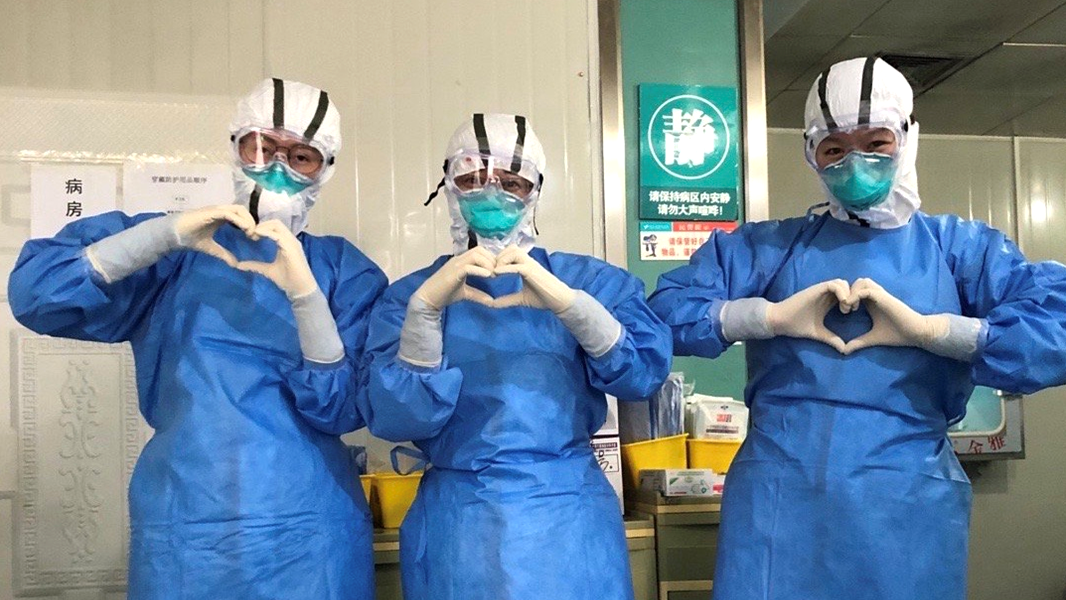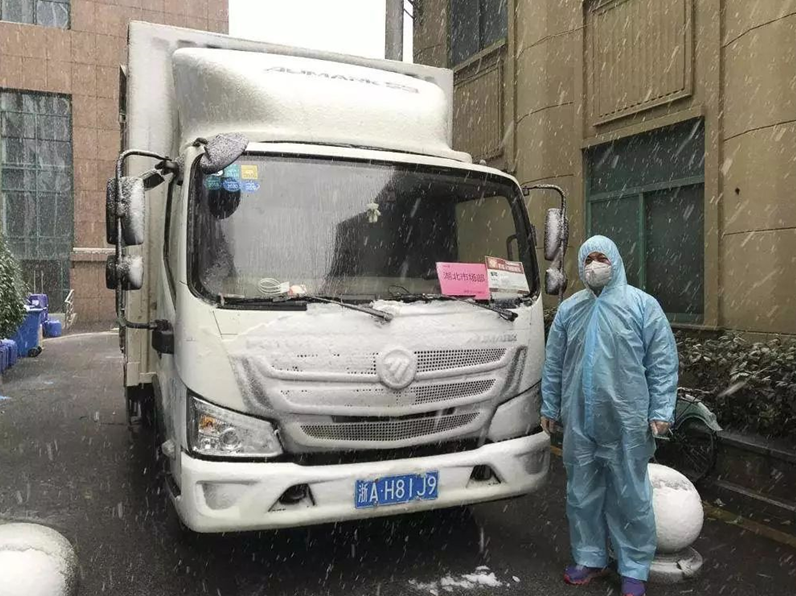
Nurses at a hospital in Wuhan. /Orthodepic Little Nurse's Weibo account.
Nurses at a hospital in Wuhan. /Orthodepic Little Nurse's Weibo account.
On February 7, a poster named "Liang Yu Stacey" launched an online campaign called "reassurance for sisters fighting the virus" on Weibo, calling attention to women's needs for sanitary products in Hubei Province.
Hospitals fighting the COVID-19 are running short of protective suits, which are single-use. In order make scarce supplies last, many front-line medical workers have been wearing the same suit for eight hours straight, without eating or going to the toilet.
When a woman calling herself Liang Yu Stacey read about this, a question occurred to her: "What if the female medical staff are having their periods? Do they have enough sanitary pads?”
Having contacted several hospitals in Hubei, Liang decided to act. She started off by making personal donations of sanitary pads for the province's female medical workers. But it soon became apparent that the shortage was much greater than she'd imagined.
She received a message from Jinyintan Hospital in Wuhan, one of the major hospitals for COVID-19 patients, asking for help for its 1,300 female medical workers.
A doctor at a hospital in Huanggang in eastern Hubei said that its 160 female staff working in the quarantine section were in dire need of sanitary products. As of February 12, more than 140 hospitals had reached out to Liang for help.
"Please open your eyes and see the needs of the female medical workers!" she wrote in her Weibo.

170 boxes containing 12,240 tampons reach Wuhan No. 1 Hospital, February 15, 2020. /Liang's Weibo account
170 boxes containing 12,240 tampons reach Wuhan No. 1 Hospital, February 15, 2020. /Liang's Weibo account
According to estimates by the Shanghai Women's Federation, at least half of the medical workers fighting the virus in Hubei, and over 90 percent of the front-line nurses are women. With the lockdown of many cities in the province and the ensuing restrictions on traffic, it has become difficult for women there to purchase sanitary products.
Along with those from the hospitals, messages from potential donors also flooded in. Liang gathered a group of volunteers and set up an online platform to coordinate the donations. With the help of Lingshan Charity Foundation, on February 11, Liang's team launched an online fundraising campaign. In less than two days, they raised over 2.3 million yuan (325,000 U.S. dollars), which was used to purchase 200,000 sanitary pads and 300,000 underwear. As of February 17, 34 percent of these purchases had been delivered to Hubei.
Liang's team has also coordinated individual, group and corporate donations of over 190,000 menstrual pads and other sanitary products, which have reached 37 hospitals across Hubei.
However, "This is still far from enough," Liang said. "The female doctors and nurses told me that one woman usually needs 15 to 20 pads per month, but now we can only give each six."

Liang's team delivers 85 boxes containing 6,120 tampons to Wuhan Central Hospital, February 15, 2020. /Liang's Weibo account
Liang's team delivers 85 boxes containing 6,120 tampons to Wuhan Central Hospital, February 15, 2020. /Liang's Weibo account
A number of companies have also stepped in to help meet the needs of Hubei's female medical staff. Manufacturers of sanitary pads, including Heng'an Group, Purcotton, P&G, and Kimberly-Clark, have sent donations.
In a number of cities across China, women's organizations have raised funds to purchase sanitary pads and adult diapers. On February 14, the China Women's Development Foundation announced that it had gathered sanitary pads and thermal underwear with a total value of 2.25 million yuan (320,000 dollars). Just two days later, the foundation launched another project with the target of raising 6 million yuan (860,000 dollars) to aid women fighting the virus. The target was achieved within 48 hours.
Liang's team is now working hard to dispatch all the procured supplies. Looking back, Liang said her initiative did have its critics, with some arguing that medical supplies such as masks and protective suits were much more important for the front-line medics.
"I can't help with their primary needs, but I can look for ways to help with their secondary needs," she said. "Many a little makes a mickle. That's how we're fighting the war on the virus."